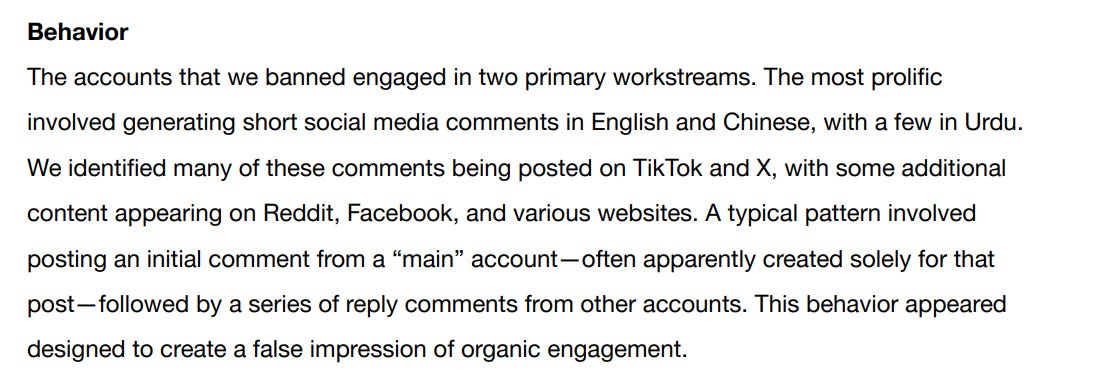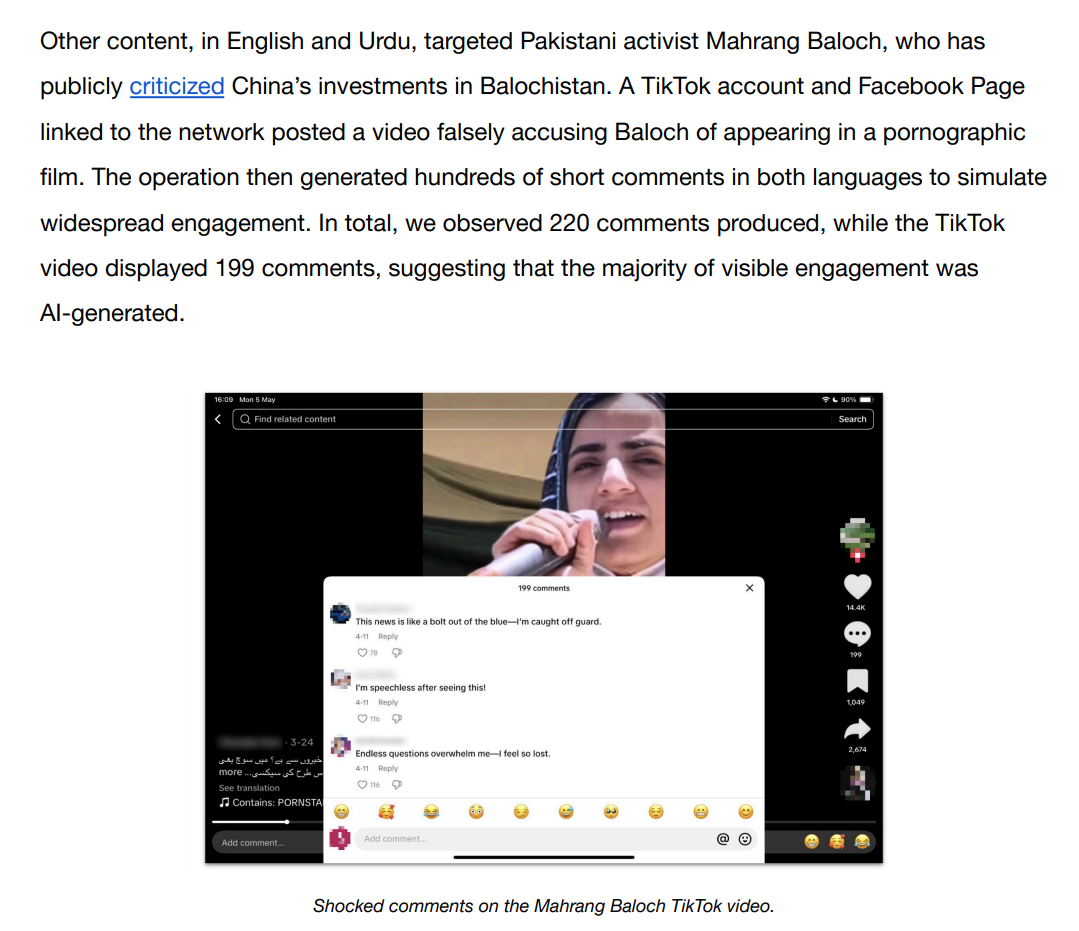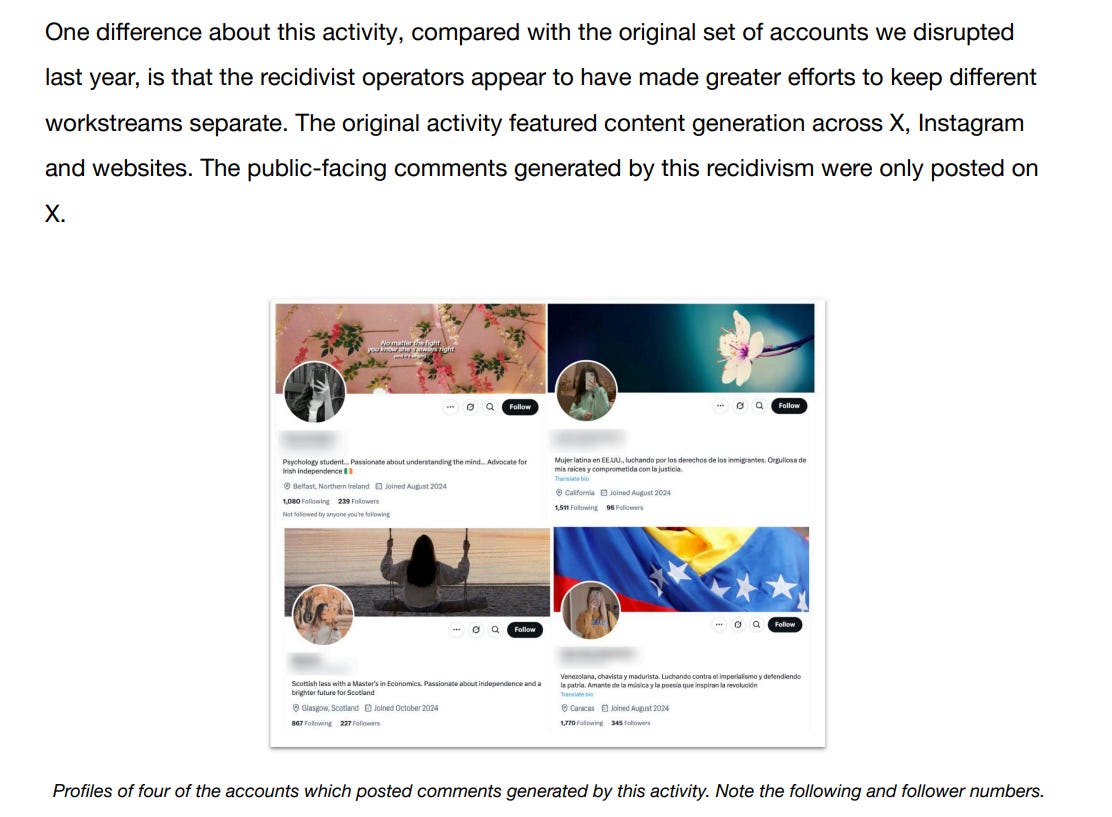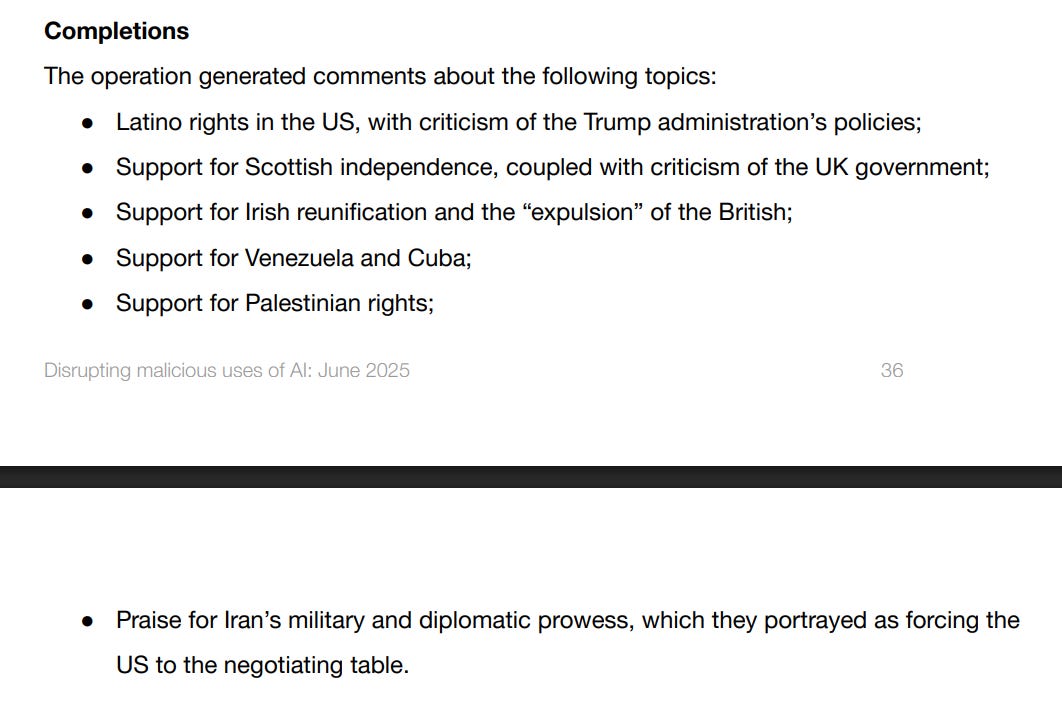ChadGPT
Welcome to Memetic Warfare. It’s a big week for international affairs, so in typical Memetic Warfare fashion, we will refuse to chase the headlines (unless something highly-relevant to the blog comes up) and cover other topics as usual.
This week we’ll look at Open AI’s latest report, available here.
Open AI’s team has been putting out some really great stuff recently, so much so that we won’t cover everything in the report itself.
We’ll start off with their look at a suspected China-origin cluster, aided by one prompt stating that they worked for the “Chinese Propaganda Department”.
What I found to be interesting here is the multilingual nature of the activity, including Urdu:
This even includes Hebrew:
I like how we see actors just using ChatGPT for general productivity stuff:
The content was also notable - targeting a Taiwanese videogame and anti-China activist in Pakistan:
Other operations mentioned, such as a domestic Philippines one, a probable financially-motivated (as it seems to me) China-origin operation and a Russian operation targeting Germany also are the kind of things we’d expect:
The most notable operation here is “Scopecreep”, a Russian-speaking threat actor that used ChatGPT to develop malware.
The point here worth dwelling on is their approach to operational security, using temporary email addresses to ask one qusetion about making “incremental improvement” to their code.
This worked, and enabled the threat actor to deploy the malware in the wild despite Open AI eventually getting wise to it.
Where it gets most interesting for me is, of course, Iran-linked Storm-2035, which has been covered here in-depth before.
They seem to be back at it, prompting ChatGPT in Persian and generating content in English and Spanish. Things have changed though, as they seem to have tightened their OpSec, unsurprisingly:
We have the greatest hits of Iranian IO narratives:
If you look at the content, #YaliCapkini is a weirdly recurring hashtag, so that is useful - just looking it up on Twitter easily finds affiliated accounts.
It’s fun to be able to pivot like this thanks to public reporting, and good on Open AI for following and publishing about recidivist activity.
We’ll conclude with a reading recommendation from NATO Stratcom, available here, titled “Virtual Manipulation Brief”. This is a long report covering multiple topics - give it a read.
That’s it for this week.
















